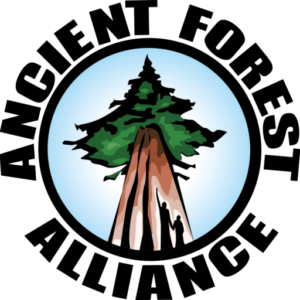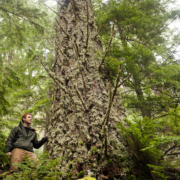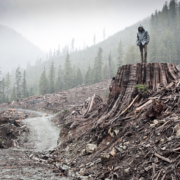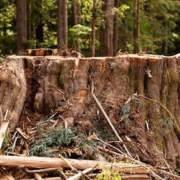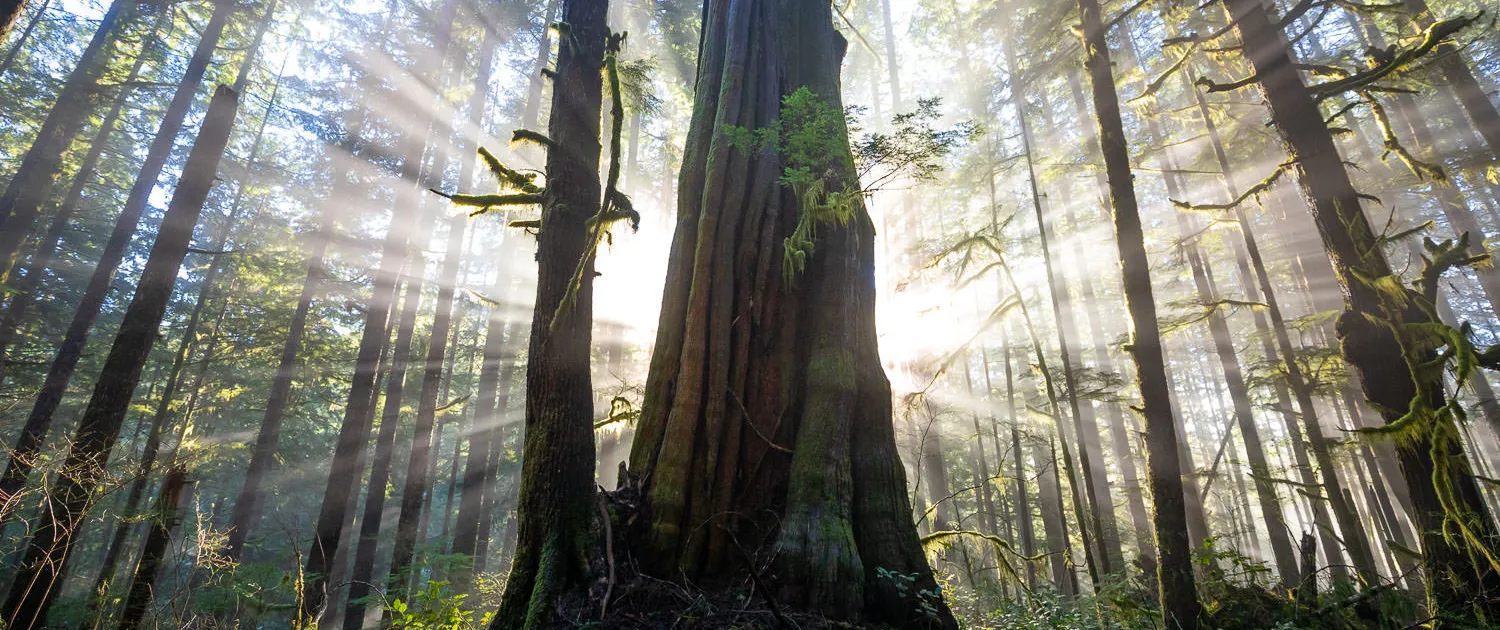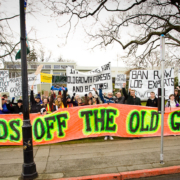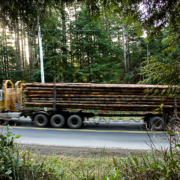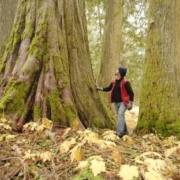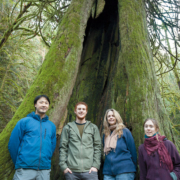Planned Old-Growth Logging by World Famous Cathedral Grove Highlights Need for New Provincial Forest Policies
Port Alberni – Conservationists are calling for much stronger, comprehensive old-growth protection policies in BC after having discovered a major logging threat to Canada’s most famous old-growth forest, Cathedral Grove in MacMillan Provincial Park on Vancouver Island. Conservationists came across survey tape marked “Falling Boundary” and “Road Location” in an old-growth Douglas fir and hemlock forest only 300 meters from the park boundary last week. See photos and a map (based on some GPS points) at: https://www.
“Cathedral Grove is BC’s iconic old-growth forest that people around the world know – it’s like the redwoods of Canada. The fact that a company can just log the mountainside above Canada’s most famous old-growth forest underscores the BC government’s deep failure to take action to protect our ancient forest heritage,” stated TJ Watt, campaigner and photographer with the Ancient Forest Alliance. “More than ever we need the BC Liberals and NDP to commit to comprehensive new legislation to protect our old-growth forests on Crown lands, and to create a fund to save endangered ecosystems on private lands.”
The lands are privately owned by Island Timberlands but until recently were regulated to the stronger standards found on public lands. However, in 2004, the BC Liberal government removed 88,000 hectares of Island Timberlands’ private forest lands from their Tree Farm Licences, thereby exempting the area from the intended old-growth, scenic, and wildlife habitat protections, and removing the existing restrictions on raw log exports and real estate development on those lands.
“The BC government removed the environmental protections on these lands a few years ago and exempted the area from other planned protections, putting these lands in jeopardy. Now they need to clean up this mess by protecting these lands, either by purchasing them or re-regulating them,” stated Jane Morden, coordinator of the Port Alberni Watershed-Forest Alliance.
“Cathedral Grove is the mascot of old-growth forests in Canada. If we can’t ensure its ecological integrity because of the BC government’s inaction – or complicity – it really gives a black eye to BC’s environmental reputation in the international community,” stated Annette Tanner, chair of the Mid-Island Wilderness Committee, who has led the fight for the ecological integrity of Cathedral Grove for over a decade.
The Ancient Forest Alliance is calling on the BC Liberals and NDP to commit to a provincial plan to protect the province’s old-growth forests, to ensure sustainable second-growth forestry, and to end the export of raw, unprocessed logs to foreign mills. For private lands, the organization is calling for a provincial “park acquisition fund” of $40 million/year to purchase endangered ecosystems on private land for protection, similar to the park acquisition funds of various regional districts, like the Capital Regional District around Victoria.
The Ancient Forest Alliance is planning a major “Pre-Election Rally for Ancient Forests and BC Forestry Jobs” this Saturday, March 16 at 12 noon at the Legislative Buildings. Already over 900 people have pre-confirmed their attendance for the rally on their website and almost 400 people via Facebook. See www.BCForestMovement.com
So far the BC Liberal government has been defending continued, large-scale old-growth logging and raw log exports in the province, often citing highly misleading statistics to convey the false message that old-growth forests are not endangered. They’ve also introduced a bill in the legislature, Bill 8, that would empower the Minister of Forests to give logging companies exclusive logging rights over massive areas of Crown forest lands by converting their “volume-based” logging rights (ie. in cubic metres) into “area-based” licences or Tree Farm Licences. Increasing private property rights for major timber companies on Crown lands is a central bone of contention for the province’s conservation organizations – and a massive fight is underway. See: https://www.
The NDP opposition has so far stayed silent on a previous commitment by leader Adrian Dix in 2011 during his leadership bid that he would, “Develop a long term strategy for old growth forests in the Province, including protection of specific areas that are facing immediate logging plans” if elected.
See: https://conservationvoters.ca/
BC’s old-growth forests are vital to support endangered species, tourism, the climate, clean water, wild salmon, and many First Nations cultures. On Vancouver Island, satellite photos show that about 75% of the original, productive old-growth forests have already been logged, including 90% of the valley-bottom ancient forests where the largest trees grow and most biodiversity resides. Only about 10% of Vancouver Island’s original, productive old-growth forests are protected in parks and Old-Growth Management Areas (OGMA’s).
See: https://www.
